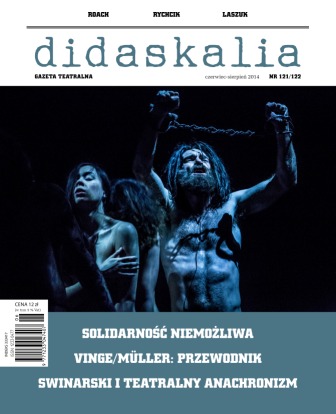
Spadkobiercy Derridy
A review of Anna Burzyńska's book Deconstruction, Politics, and the Performative (Universitas, 2013). This publication is the fruit of Burzyńska's many years of studying Jacques Derrida's theories and how they work. Dobrowolski is full of admiration for the author and her ability to explain the philosopher's ideas in a simple, logical, and precise fashion, and for her placement of deconstruction in the context of humanists contemporary to Derrida – Jon McKenzie and Erika Fischer-Lichte. The reviewer believes that this book is a splendid compendium of knowledge on the French philosopher.
More...